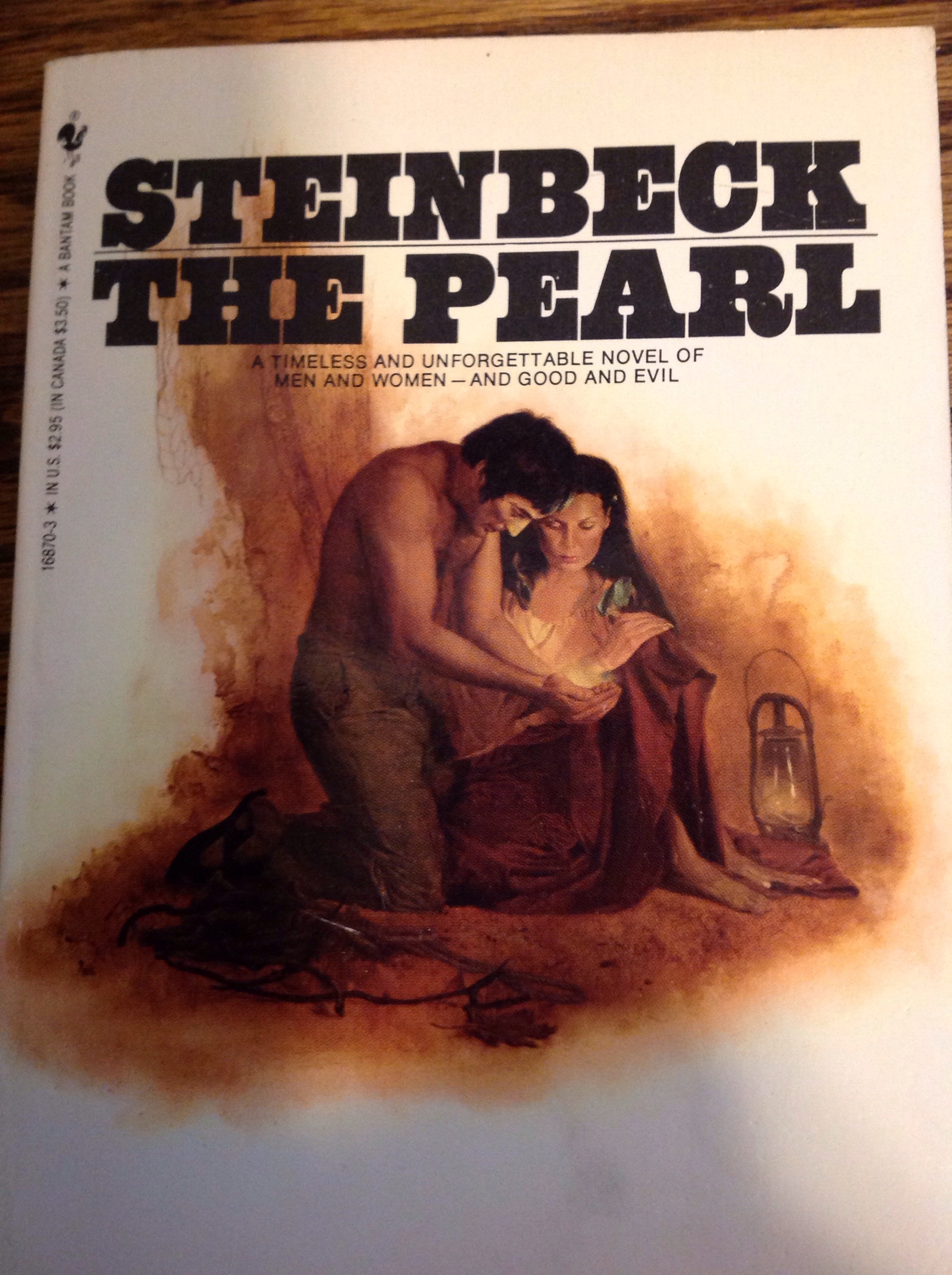
I like Steinbeck novels. Ironically, it’s because I had to read one of his worst novels in high school. We spent months analyzing “The Winter of Our Discontent.” I hated it. And because I was going to write a negative review (we called them Book Reports in school,) I did a lot of research. I found reviewers who described “The Winter of our Discontent” as Steinbeck’s worst book. I featured that quote quite prominently in my report.
But, a funny thing happened on the way to the forum. I learned so much about John Steinbeck, his writing and his history that I came to love his work. (Except “The Winter of Our Discontent.” I still hate that book.)
When I picked up “The Pearl,” I thought I was familiar with the story. Wasn’t it about a bunch of farmers? Just a few pages convinced me that I was misremembering. I was actually thinking the “The Good Earth” by Pearl S. Buck.
The Pearl, at 118 pages is not a long book. In fact, it’s barely longer than some short stories I’ve read. But, like typical Steinbeck stories, it’s about people, at it’s heart. The “pearl” referred to in the title is a magnificent speciman that the main character, a poor pearl diver, finds.
Steinbeck manages to show us the hopelessness of the very poor. Kino, the diver, hopes to use the proceeds from the pearl to lift his family out of poverty. But, ironically, he’s too poor to get rich. His options are limited not by the value of his prize, but by the limitation of his opportunities.
Steinbeck is writing about a pearl, but he’s really talking about those who remain on the bottom of the economic ladder, literally through no fault of their own. It’s a tragic tale.
What I Liked
It was a wonderful surprise to realize I didn’t know the story after all. And that suspense and surprise carried easily through the entire book. Even knowing, or suspecting the futility of Kino’s mission, each page was a treasure.
What I Didn’t
I think Steinbeck did it on purpose, but I had trouble placing the story, both in time and place. It adds to the universality of the story, but it still was distracting to continually try to decide what country, or even what continent they were on. Also, the sorry is ultimately sad. Again, the author did it on purpose, but, it was still sad.
What It Means To You
If you are a Steinbeck fan, you are most likely already familiar with this book. If not, this book would be a great introduction to his work. It’s a book you can consume in a long afternoon.
My Rating
Four out of four stars
Stay safe
Rodney M Bliss is an author, columnist and IT Consultant. His blog updates every weekday. He lives in Pleasant Grove, UT with his lovely wife, thirteen children and grandchildren.
Follow him on
Twitter (@rodneymbliss)
Facebook (www.facebook.com/rbliss)
LinkedIn (www.LinkedIn.com/in/rbliss)
or email him at rbliss at msn dot com(c) 2020 Rodney M Bliss, all rights reserved